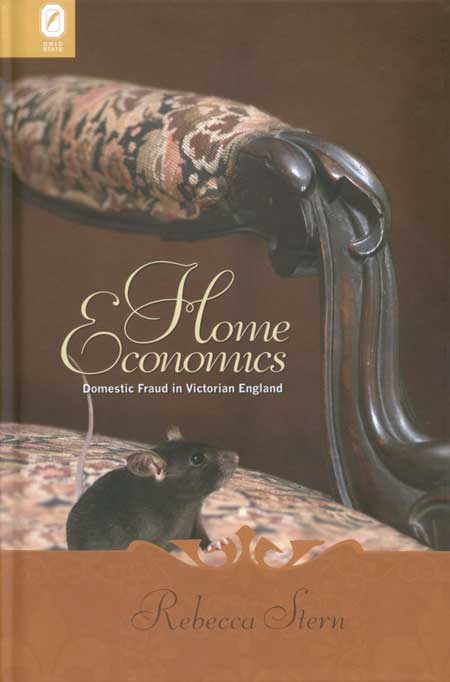Home EconomicsDomestic Fraud in Victorian EnglandRebecca Stern |
 Apr 2008 Literary Criticism/British 207 pp. 6x9  $29.95 paper 978-0-8142-5691-6 Add paper to shopping cart $32.95 PDF ebook 978-0-8142-7995-3 Add PDF ebook to shopping cart Shopping Cart Instructions Review/Change Shopping Cart & Check-out | |||
|
read excerpts from
the book • leave / read comments and critiques of the book • Explore More Victorian Women Writers Project The Dickens Project, University of California Santa Cruz |
“Rebecca Stern’s Home Economics is a thoughtful, thoroughly researched and authoritative exploration of an original and important subject: domestic fraud in Victorian culture. In addition to the sophistication of its intellectual arguments, this work has the advantage of being written in a mature, polished style.”—Nancy Henry, associate professor of English, SUNY Binghamton “I love the way this book is written. From the first page, it pulled me into the irresistible flow of its own narratives. The analytical passages, too, are lively and amusing.”—Robyn Warhol, professor of English, University of Vermont In Home Economics: Domestic Fraud in Victorian England, Rebecca Stern establishes fraud as a basic component of the Victorian popular imagination, key to its intimate, as well as corporate, systems of exchange. Although Victorian England is famous for revering the domestic realm as a sphere separate from the market and its concerns, actual households were hardly isolated havens of fiscal safety and innocence. Rather, the Victorian home was inevitably a marketplace, a site of purchase, exchange, and employment in which men and women hired or worked as servants, contracted marriages, managed children, and obtained furniture, clothing, food, and labor. Alongside the multiplication of joint-stock corporations and the rise of a credit-based economy, which dramatically increased fraud in the Victorian money market, the threat of swindling affected both actual household commerce and popular conceptions of ostensibly private, more emotive forms of exchange. Working with diverse primary material, including literature, legal cases, newspaper columns, illustrations, ballads, and pamphlets, Stern argues that the climate of fraud permeated Victorian popular ideologies about social transactions. Beyond providing a history of cases and categories of domestic deceit, Home Economics illustrates the diverse means by which Victorian culture engaged with, refuted, celebrated, represented, and consumed swindling in familial and other household relationships. Rebecca Stern is associate professor of English at the University of South Carolina in Columbia. | |||

